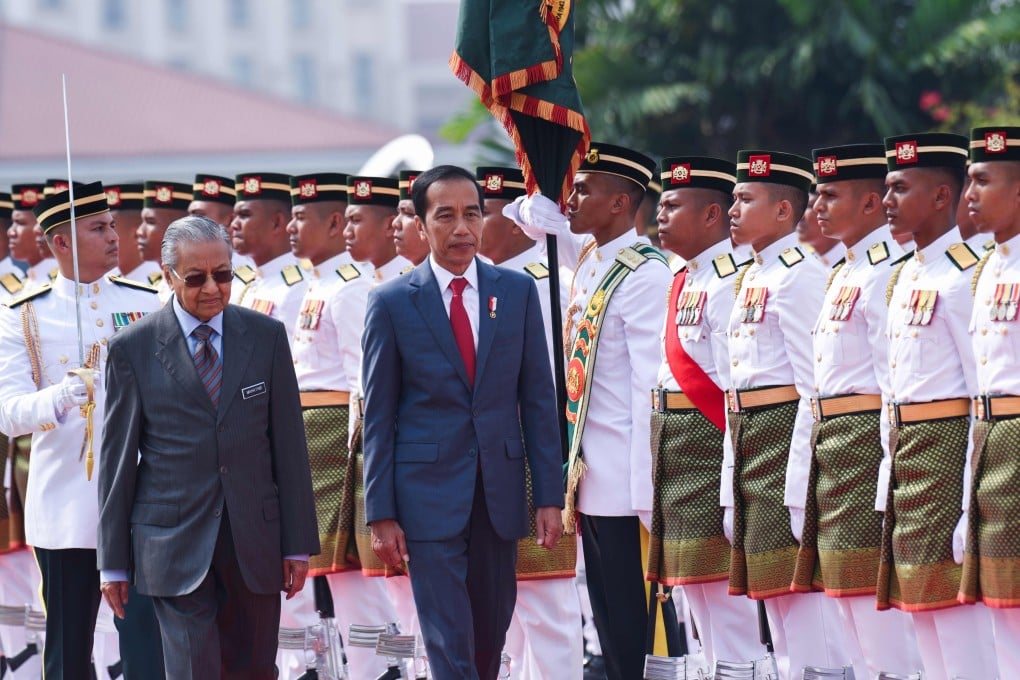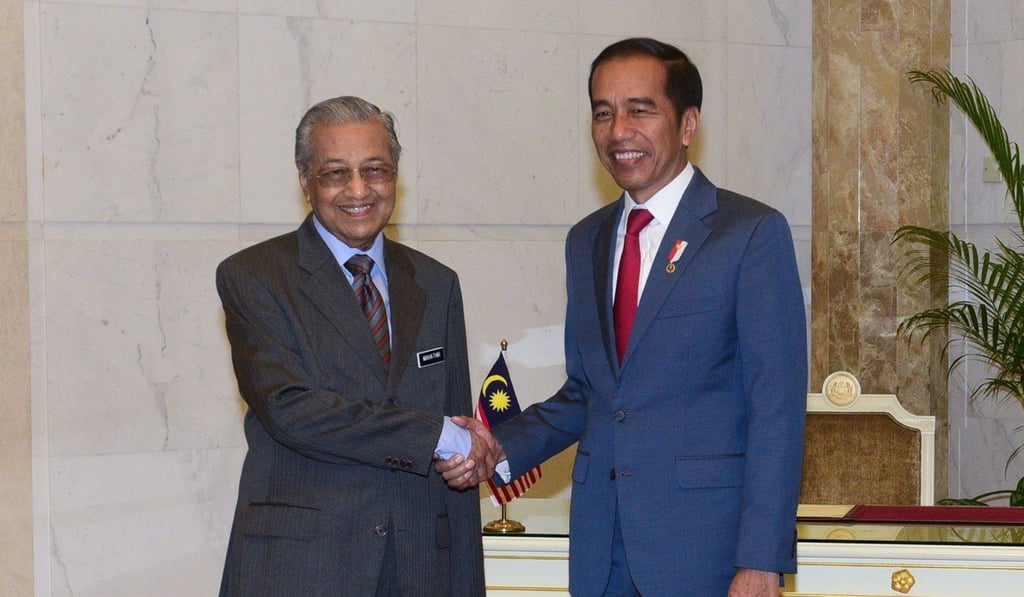Advertisement
Disputes aside, Joko Widodo’s visit to Malaysia may be a sign of rosier times
- Indonesian president discussed migrant workers, border issues and palm oil cooperation with Mahathir Mohamad during the two-day visit
- Malaysia’s 94-year-old leader Mahathir was seen on Friday driving Widodo to prayer in a Proton – the country’s national car
Reading Time:4 minutes
Why you can trust SCMP

Indonesian President Joko Widodo arrived in Malaysia late on Thursday for his first official visit since being re-elected in April, looking to tackle long-running border disputes and workers’ rights concerns. But analysts said despite the full roster of issues, rosier ties between the two nations may usher in a period of “stability”.
“Both leaders discussed briefly on bilateral and other issues of common interests, among others – Asean car project, cooperation in palm oil industry, community learning centre (CLC), maritime boundary delimitation and land boundary demarcation, Indonesian domestic workers as well as Indonesian flight information region (FIR), the Malaysian Foreign Ministry said.
“Both leaders agreed for the issues to be further deliberated during the 13th Malaysia-Indonesia Annual Consultation, to be hosted by Indonesia."
Advertisement
Indonesia has renewed its pledge to complete the takeover of FIR control over Riau Islands and Riau provinces from Singapore.

Advertisement
"Both leaders also touched on Timor-Leste’s application to join Asean,” the statement continued, adding that Malaysian Prime Minister Mahathir Mohamad had invited the Indonesian leader to attend the KL Summit in Kuala Lumpur from December 19–21.
Advertisement
Select Voice
Select Speed
1.00x